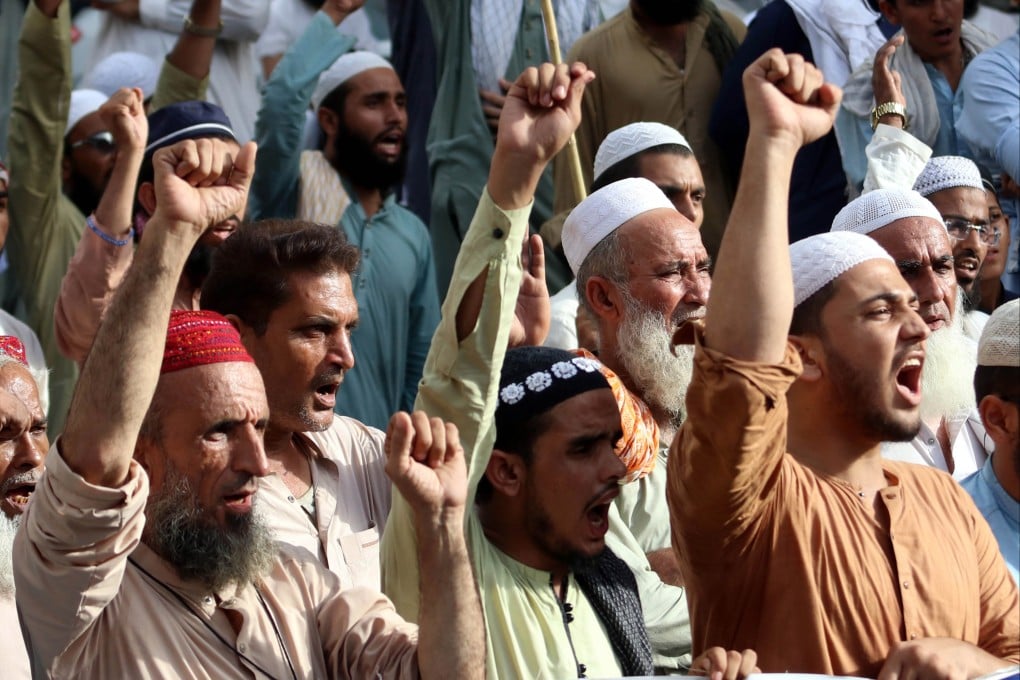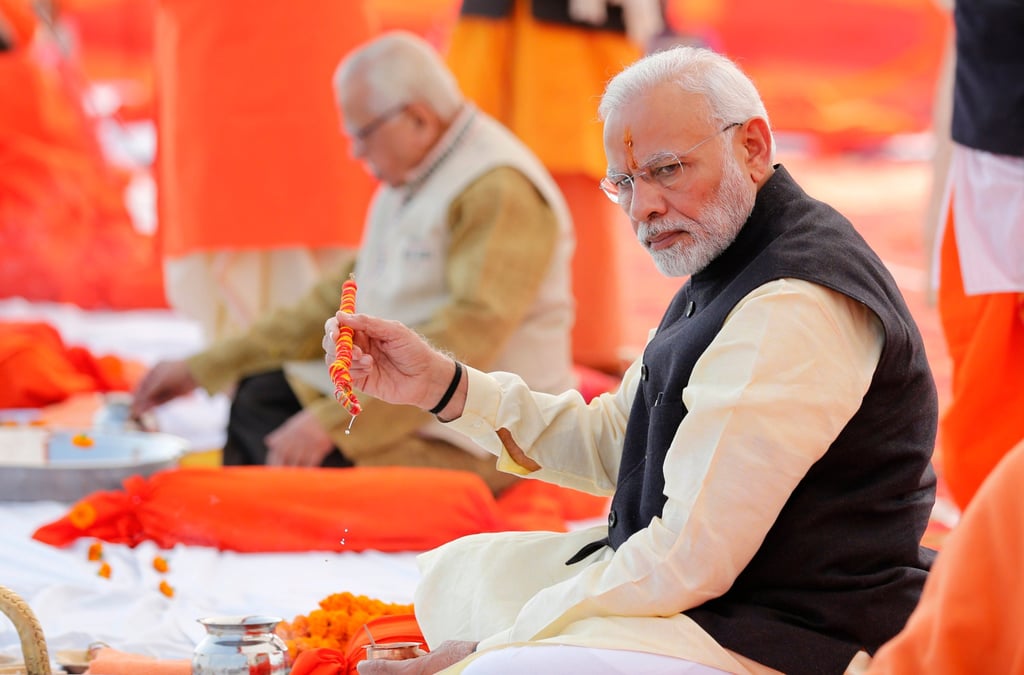Advertisement
India under fire as Muslim nations lash out over Prophet Mohammed remarks
- New Delhi is struggling to contain the diplomatic fallout from controversial comments made by two prominent spokespeople from the ruling Bharatiya Janata Party
- Afghanistan and Pakistan have joined Iran, Saudi Arabia and other Gulf Arab states in expressing their outrage at the remarks – risking bilateral relations
Reading Time:3 minutes
Why you can trust SCMP
8

India is facing major diplomatic outrage from Muslim-majority countries after top officials in the governing Hindu nationalist party made derogatory references to Islam and the Prophet Mohammed, drawing accusations of blasphemy that have left New Delhi struggling to contain the damaging fallout.
At least five Arab nations have lodged official protests against India, and Pakistan and Afghanistan also reacted strongly on Monday to the comments made by two prominent spokespeople from Prime Minister Narendra Modi’s Bharatiya Janata Party. Anger has poured out on social media, and calls for a boycott of Indian goods have surfaced in some Arab nations. At home, it has led to protests against Modi’s party in some parts of the country.
The controversial remarks follow increasing violence targeting India’s Muslim minority carried out by Hindu nationalists who have been emboldened by Modi’s regular silence about such attacks since he was first elected in 2014.

Over the years, Indian Muslims have often been targeted for everything from their food and clothing to inter-religious marriages. Rights groups such as Human Rights Watch and Amnesty International have warned that attacks could escalate. They have also accused Modi’s governing party of looking the other way and sometimes enabling hate speech against Muslims, who comprise 14 per cent of India’s 1.4 billion people but are still numerous enough to be the second-largest Muslim population of any nation.
Advertisement
Modi’s party denies the accusations, but India’s Muslims say attacks against them and their faith have increased sharply.
The anger has been growing since last week after the two spokespeople, Nupur Sharma and Naveen Jindal, made speculative remarks that were seen as insulting Prophet Mohammed and his wife Aisha.
Modi’s party took no action against them until Sunday, when a sudden chorus of diplomatic outrage began with Qatar and Kuwait summoning their Indian ambassadors to protest. The BJP suspended Sharma and expelled Jindal and issued a rare statement saying it “strongly denounces insult of any religious personalities”, a move that was welcomed by Qatar and Kuwait.
Advertisement
Advertisement
Select Voice
Choose your listening speed
Get through articles 2x faster
1.25x
250 WPM
Slow
Average
Fast
1.25x